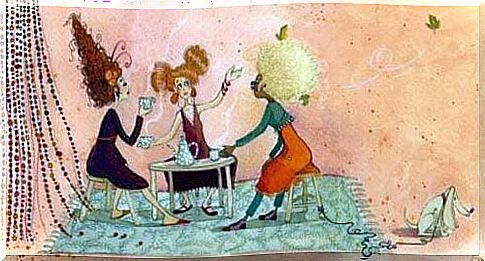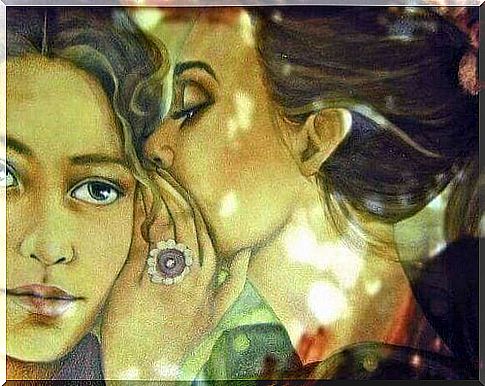Queen’s Syndrome In Women

Bee queen syndrome in women covers a range of beliefs and uncertainties. They make the person affected by it try to project their weaknesses onto other women.
Bee queen syndrome in women

Queen queen syndrome in women is not recognized by professionals. However, there are many people who seek help to identify it and demonstrate the rival behavior that some women have.
In the hives, the queen bee has a major role. She is surrounded by many male bees, as well as female bees that are not fertile. This makes her feel bigger than those around her. It is a position that many women long for.
Society and competition
From a young age, we learn to compete with the people around us.

As a result, when we think we’re trying to improve ourselves, we do not do it to improve ourselves. In fact, we do it to show ourselves. We do it in often to be better than those around us so they become envious.
This is what queen bee syndrome in women is all about.
Women in society
Women have to deal with a great deal of social pressure. They have to live up to impossible beauty standards, are pressured to be perfect and to do everything right. Above all, they also learn to see other women as their rivals.
Why do we see other women as rivals but not men?

This is often because we identify more with other women. But it is also due to a type of behavior that we learn from a young age: to criticize other women, to judge them, and to want to be better than them.
As we see it, this behavior should be done away with. However, it continues to be present to such an extent that some women end up suffering from queen bee syndrome.
Queen’s Syndrome: How to detect it
To know if a woman has queen bee syndrome, just look at her behavior. At times, you might think she has a big ego, that she is very competitive or that she is jealous. But if you look closer, there is more below the surface:
You always hear her talk bad about other women and gossip about what they do or will not stop doing. Everything she says is always negative, degrading and humiliating.

Her eagerness to show herself and put herself in the lead regardless of the cost is evident. This can include losing friendships and building a very unsettling passive-aggressive behavior.
She will try to make other women her “subordinates” to make herself stronger. By doing this, she will lower the self-esteem and morale of those she considers to be her enemies.
As we can see, this attitude is very toxic. It causes a lot of pain for other people who are so unlucky to be near someone suffering from this syndrome.
But what is behind this syndrome?
Women with great insecurity
Women suffering from queen bee syndrome need to step on others and undermine the self-esteem of those they consider to be their rivals. But they do it because they do not feel confident.

Because of this, they are in fact projecting their insecurities onto other women. By doing this, they are trying in a harmful way, to get the security they lack.
Every time we see someone treating others badly, someone trying to show off, or someone behaving “cool”, we should realize the truth. They are not like that because they think they are better and stronger. In reality, behind the facade is a wounded, fragile person with low self-esteem and a lot of unresolved insecurity.
Despite all this, we need to learn to be careful about the type of people and about those who suffer from queen bee syndrome in women because they can cause a lot of pain. Without realizing it, they make us participate in their beliefs, in their insecurities and in the anxiety they cannot acknowledge in themselves.
Have you ever suffered from queen bee syndrome? Can you recognize it in someone around you (at work or in your private life)?









